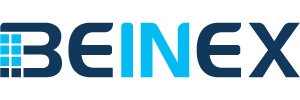Governments and public sector enterprises in the Middle East are investing heavily in next-generation technologies to reshape governance and citizen services. With advancements in AI, data analytics, cybersecurity, blockchain, and other emerging technologies, governments across the region are redefining operational efficiency, enhancing public service delivery, and improving citizen engagement.
MIT Sloan Management Review Middle East’s GovTech Conclave 2025 will bring together technology leaders from the public sector to discuss the transformative potential of technology in governance. This event will offer actionable insights into how governments can leverage cutting-edge solutions to build resilient, transparent, and accessible digital frameworks.
With AI as a key enabler, the conclave will explore how it enhances various technologies—such as blockchain, IoT, and data analytics—to shape smarter, more efficient governance. From optimizing operations and enhancing cybersecurity resilience to enabling data-driven decision-making, the conclave will examine how these technologies are revolutionizing governance across the Middle East.
The event will provide practical guidance for governments to harness the power of GovTech to create smarter, more resilient, and responsive public services. It will examine AI’s potential to address complex challenges while ensuring transparency, ethical standards, and public trust in the evolving landscape of digital governance.
























 Partner
Partner Partner
Partner Partner
Partner Partner
Partner Partner
Partner Partner
Partner Partner
Partner Partner
Partner Partner
Partner Partner
Partner Partner
Partner Partner
Partner Partner
Partner Partner
PartnerGovernments across the Middle East are harnessing digital governance technologies to transform public services and increase transparency. With AI set to contribute $320 billion to the region's economy by 2030, this session dives into the Middle East’s leadership in digital governance. Experts will explore how AI, blockchain, and other cutting-edge technologies are driving smarter decision-making and reshaping government operations.
With the increasing complexity of public sector demands, governments are turning to emerging technologies to streamline operations and enhance collaboration. This session will dive into how AI and automation are transforming routine processes, enabling more efficient resource management and improving inter-departmental coordination. The speaker will highlight how technology is empowering governments to deliver faster, more responsive services while meeting the demands of the digital age.

As governments accelerate their digital transformation, the challenge is no longer just about adopting new technologies—it’s about integrating them seamlessly to create impact at scale. This session examines how cloud, AI, and advanced analytics are reshaping public sector infrastructure, enabling more agile, secure, and citizen-centric services. What are the key enablers for governments to move from innovation pilots to widespread implementation?

In the AI era, data is more than just a resource; it’s the foundation for smarter decision-making. Governments worldwide are investing in AI and advanced analytics to make evidence-based decisions that improve policy outcomes. This session will cover data governance frameworks, AI adoption challenges, and how data-driven insights are reshaping government operations to increase resilience in the face of social, economic, and environmental challenges.



Reserved for Logitech
Generative AI is transforming the way governments automate processes, from decision-making to public service delivery. This session will explore the future of AI-powered automation in government, including the challenges of implementing AI responsibly, addressing bias, and the role of AI in enhancing citizen experiences.

This edition of MIT SMR Connections, presented in partnership with e& engageX, will examine how governments can leverage AI to enhance citizen experience (CX)—from streamlining digital interactions to reducing service bottlenecks and enabling data-driven decision-making. By invite only
How can governments quantify the real impact of digital transformation? This session explores Ukraine’s approach to scaling digital services and innovative solutions from the local to global administrative levels, as well as ensuring new methodologies in Ukraine before and during crisis. Through a deep dive into policy analytics, digital literacy research, and resilience-building strategies, these case studies offer insights into how data-driven governance can strengthen public sector innovation in complex environments and accelerate the diverсe of public-private & civic-public partnerships.

As governments digitize services, cybersecurity becomes critical. With 55% of Middle Eastern companies prioritizing cyber risk mitigation, this session looks at how governments are deploying advanced cybersecurity technologies to safeguard digital services. Panelists will discuss strategies for defending against growing cyber threats and ensuring the integrity of public sector operations.


Technology is allowing governments to be inclusive, resilient, and effective. This session explores real-world examples of how technologies like AI, blockchain, IoT, and mobile platforms build robust systems, foster cross-sector collaboration, and prioritize citizen services. From integrating technology, enhancing public service delivery, improving transparency, and ensuring accessibility for all citizens, discover the practical steps and challenges in creating a future-ready society through digital transformation.

Governments are moving to the cloud to enhance scalability, efficiency, and service delivery—but migration comes with complex challenges. This session examines strategic approaches to cloud adoption in the public sector, addressing data sovereignty, cybersecurity, and the trade-offs between hybrid, multi-cloud, and on-prem solutions. How can governments modernize infrastructure while maintaining control and resilience?



As governments across the Middle East accelerate their digital transformation agendas, public sector contact centers are under pressure to deliver faster, more accessible, and more efficient services. This presentation explores how AI is reshaping service delivery through intelligent CX automation—streamlining operations, reducing costs, and improving response times.
Drawing on real-world applications, the session examines practical strategies for deploying AI in complex public sector environments, with a focus on measurable outcomes: operational efficiency, improved citizen satisfaction, and enhanced accessibility.
Reserved for Verint

As governments strive for transparency and inclusivity, open data and collaborative governance models have become essential. This panel will explore how open government initiatives, driven by secure data-sharing technologies, are paving the way for a more participatory and transparent digital democracy. Open government initiatives don’t exist in isolation—they thrive when supported by strong innovation networks, and best practices for ensuring that public data is accessible, secure, and used responsibly to drive innovation.




This panel will focus on the ambitious digital transformation agendas of the Middle East, including Saudi Arabia’s Vision 2030 and the UAE’s digital government initiatives. Explore the region's progress in transforming public sector services and its strategic vision for the future, alongside the challenges and successes encountered along the way.




As digital services become the norm, the public sector is reimagining how it engages with and serves its citizens. This session will explore how emerging technologies like AI, chatbots, and personalized digital portals are transforming public service delivery, making it more accessible, responsive, and user-centric. Experts will share insights on how these innovations can improve service quality, increase citizen satisfaction, and build public trust.


Apply here to become a speaker at this or other MIT Sloan Management Review Middle East events.
Apply here to be a speakerFor any queries, please reach out to marketing@mitsloanme.com
